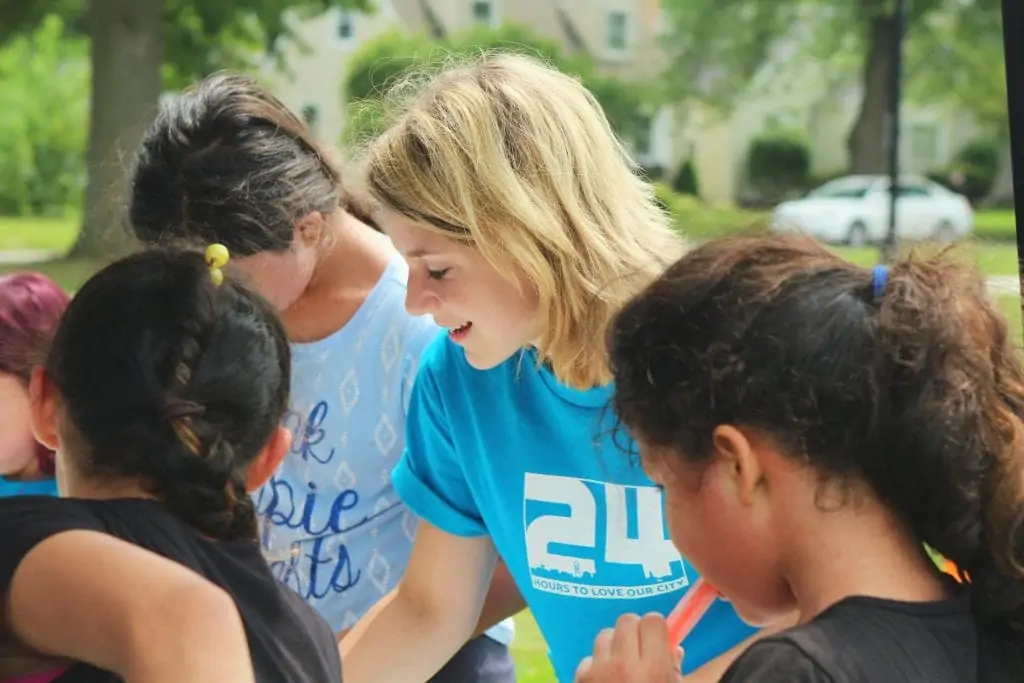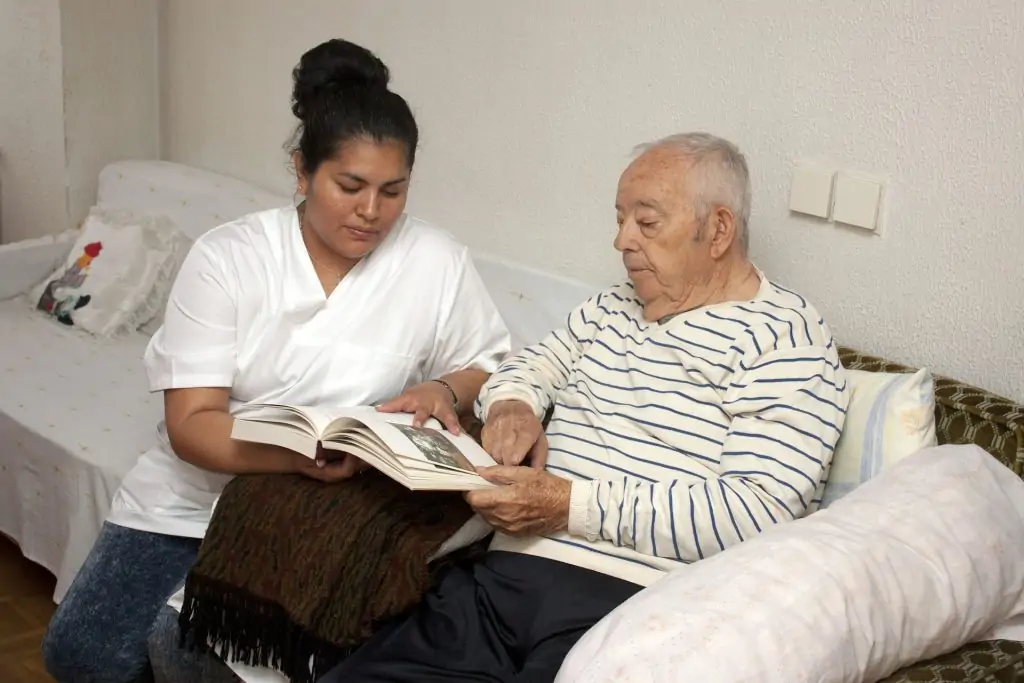There are a variety of factors that contribute to one’s acceptance to medical school. One of them being volunteer hours. The purpose of this requirement is to get students into the medical setting to gain experience and confidence. Being accepted to medical school is a competitive process that many students dream of and a fraction achieve. Therefore, perfecting your application and resume, including your volunteer hours, are of the utmost importance for incoming students. This guide will walk you through how many volunteer hours you should get, where you should get them, and why they are important.
Why Your Volunteer Experience Is Important for Pre-Meds?
Volunteer hours are very important for medical school. At first, they may seem like a tedious task that is time-consuming and, at times, perhaps distracting to your medical school goals. However, these volunteer hours are a requirement and valued for so many medical schools for a reason. If you are entering the medical field in any capacity, you hopefully are doing so partly to help people. Volunteering is simply helping others out of the “goodness of your heart.” In other words, the purpose of volunteering isn’t for the money, but to help others in some way.
Helping others
Therefore, the same pattern of helping other people in a volunteer setting would be extended to a medical profession. The hope then would be for students to get used to being in an environment where they are doing a service for others out of their intrinsic motivation, rather than for a paycheck. Whether you are volunteering to invest time in the homeless population, elderly population, special needs community, or sick people, volunteering will help promote a pattern for your mind to help others. These hours will also help solidify your desire to help others in the future on an even more regular basis as well.
Intentions
This then is a check of their motives to ensure that their work will be done from a place that cares and will do their best to provide care rather than wear the white coat just for the money aspect of the job. Most medical school graduates get a high paying job, and that paycheck is a motivating factor for many to begin studying medicine in some capacity. However, that should not be the only reason for their interest in the field. This volunteering experience will show the medical school admission officials that you care about others and are interested in attending their university to continue this trend of care that you have defined within your volunteer hours.
Experience in a hospital
There are many volunteer opportunities in hospitals and other places of medical practice. Of course, it is not required by all medical schools that volunteer hours be completed in a medical setting, although they may be more respected hours than those spent in non clinical volunteering. The reason that this is a superior experience is very that it can be encouraging and affirmative in your decision to pursue such a degree. On the contrary, some students may find that they don’t like the medical setting after volunteering in the hospital for some time. The fast-paced environment is not for everyone, so being exposed to it before investing many more years into studying medicine is valuable for both you, as the student, and for the medical school admissions committee since they, too, will be confident in your commitment and eagerness to study there.
What Type of Volunteer Activities Should You Engage In?
There are a multitude of volunteer opportunities to take advantage of in general, and for pre-med students specifically. Some employers recognize the demand for hours that many pre-med students have, so some medical offices create positions for students who want to complete their volunteer time within a medical setting. These opportunities obviously can’t take place where a student is providing care since they aren’t certified to do so, however, sorting paperwork or helping a doctor in some capacity outside of directly providing care is a way that many organizations and students alike enjoy completing volunteer hours.
But where should you do these hours? This is a good question considering how many places are eager for volunteers. These volunteer hours are different from the hours you may have completed for the NHS in high school. Instead of signing up to clean up a garden or sing Christmas Carols in a neighborhood, think twice about the purpose for your hours and consider how they might impact or enhance not only your ability to get accepted to medical school but how they will influence your future career as well.
Therefore, choosing volunteer hours that are similar to what you hope to do as a future career is wise as is participating in volunteer hours that reveal this section of interest. You may make connections in the medical field who are willing to write you a letter of recommendation or even perhaps offer you a future job after you complete medical school. Either way, getting involved in a practice that you are passionate about or interested in Is a valuable way to spend your pre-med volunteer hours, even is your capacity of aid is limited to checking people in or picking up shipping orders, your work ethic and attitude will be picked up on and can be propelling factors for your future if they are shown in an appropriate setting.
What is a Good Amount of Volunteer Hours in Med School?
How much volunteering is good enough for medical school? Believe it or not, volunteer hours are not required for medical schools, however, they are highly encouraged, and to a great extent. A respected amount of volunteer hours when applying to medical school is about 10-15 hours a month for 6 months. This reveals your dedication to a specific organization and your passion for whichever career it mirrors.
Furthermore, it shows your passion for the work you are doing. This is about an average range for applicants to fall into meaning your application will seem inferior if you don’t meet it, and impressive if you exceed it.
It’s important to remember the other aspects of your medical school application when considering your volunteer hours. In other words, having an impressive number of hours does not guarantee your admission if you scored poorly on the MCAT or have an unimpressive GPA. For most medical schools, they get so many applicants each year that they filter through the candidates based just on their GPA and MCAT scores before they consider other pieces of each student’s application.
This situation clearly outlines how important your GPA and MCAT scores are to the application process since if you don’t fall into a school’s range of each, your application will likely be declined before the admissions committee even looks at your volunteer hours or extra-curricular activities and interests.
That being said, when you do fit a school’s MCAT and GPA requirements, admissions personnel will then emphasize your other pieces of information, including your volunteer hours. This is ironic since for the first round it wasn’t considered, but influential in their decisions for further rounds. This is both encouraging and conflicting for some students depending on their MCAT and GPA scores who are interested in medical school but don’t know where to focus their time.
At the end of the day, it is best to have a strong application throughout that will endure each round of medical school consideration. However, for students looking to apply, we suggest that you focus on your MCAT score and GPA before you invest time and energy into other things like volunteer hours since if you know that you don’t cut it score-wise, it’s unlikely that you will be admitted or make it to rounds of admission where your hours will be viewed.
Do You Need Proof of Volunteer Hours for Med School?
Do medical schools verify volunteer hours? Volunteer hours are usually “on your honor.” In other words, med school typically trusts you to be honest about the volunteer hours they completed. However, some schools have methods to ensure that their students are truly completing their said time. If you are caught lying about these hours, that would be devastating to your admission to the school.
Shadowing experiences, community service, and volunteer hours, as said above, should be completed not only to enhance your application but to do so out of a genuine place. If one were to lie about such time that is a moral problem that the student should consider as a red flag when entering the medical field. Otherwise, said, if the student can’t even complete a couple months’ worth of service in some capacity, how are they to be expected to provide are for patients in the future as a career? Day in and day out their job will be to help others, something that does not correlate with the pattern they demonstrated by lying.
How Can You Get Your Volunteer Hours Fast?
In a time crunch to get your hours in? To avoid this it’s best to plan ahead. However, if it’s too late for that there are some ways to get volunteer hours in quickly. Developing a schedule to complete them is the first step and will prove to keep your hours organized and timely. Furthermore, you should look into what volunteering opportunities you have available to you and filter them based on how many hours are up for grabs rather than what jobs seem appealing.
Some volunteering opportunities, for example, are only offered during the mornings, while others are all day long (and sometimes at night too depending on what locally is offered to you). Choosing an opportunity that you can consistently work with will be helpful as well as time consuming for your application and resume.
Wrapping Things Up: How Many Volunteer Hours for Medical School is Enough?
Simply, about 50 to 200 volunteer hours is enough for medical school. This is not your most dependent part of your application although it can be influential in other rounds of admission. Getting your hours in this range is appropriate but once you near or exceed 200 hours, it is important to consider whether your time could be better spent enhancing other aspects of your application like perhaps studying for the MCAT. Volunteer hours are essential to your medical school application, but they aren’t everything.
Did you enjoy this post? If so, check out our other medical school study tips here. Check them out below:
> Does Undergrad Matter for Medical School?
> How to Get Into Med School with a Low GPA?











